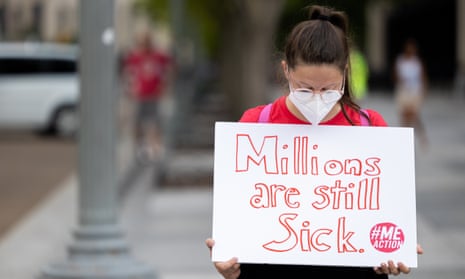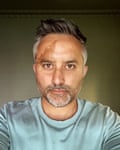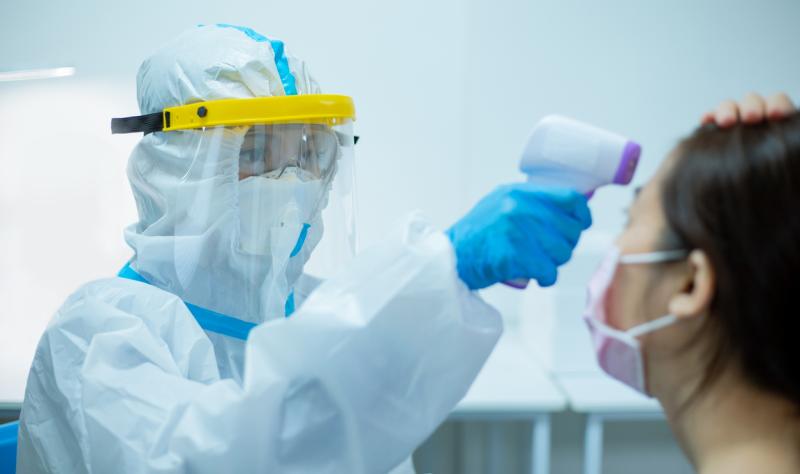Over 2,000 Guardian readers told us about their long Covid fight. Here are their stories

Over 2,000 Guardian readers told us about their long Covid fight. Here are their stories

The chronic condition has an array of physical and neurological symptoms, but most remain misunderstood
From overwhelming fatigue to brain fog that makes it impossible to complete daily tasks, long Covid is having a devastating impact on people’s lives around the world.
But with no test for the chronic condition, it has proven difficult to measure how many people are living with the syndrome weeks, months and even years after contracting the virus. It is an umbrella term describing an array of physical and neurological symptoms, including ones like memory issues.
A recent call out asking Guardian readers for their experience with long Covid received nearly 2,000 responses from people in the Americas, Asia, Africa, Europe and Oceania.
Many respondents described their struggle to have their condition taken seriously by doctors, family and friends; others spoke of difficulties getting an official diagnosis and being recognized as disabled by their workplace or government. Some also said they had been financially affected after having to take significant time off work, reduce their hours or stop working entirely, reflecting a survey that found one in five workers were not working as a result of illness, while almost half of those had reduced their hours.
Here, seven people from around the world share their experiences of living with long Covid, and the impact it has had on their physical and mental health, ability to work and relationships.
‘A year on, I’m still bed bound in a dark quiet room’

“Before Covid I ran five to 10 miles and lifted weights six days per week. When I tested positive in October 2021, it was mild, I was able to work remotely all week. A few days later, I noticed involuntary muscle twitching, confusion, aphasia, dizziness, poor balance, difficulty waking and fatigue. We went to the ER because my husband thought I was having a stroke.
“It became much more severe over the next few months, having seizures, migraines, hallucinations, and severe cognitive issues. I received my long Covid diagnosis from a neurologist at Mayo [Clinic] in April 2022. Even with the visible seizures and inability to walk, my local hospital listed psychosomatic causes in my medical records.
“I’m still bed and sofa-bound in dark quiet rooms and I’m unable to perform any activity longer than 10 minutes. I only leave the house for medical appointments because the stimulation causes severe fatigue that lasts for days to weeks. When I leave I use a wheelchair and use a walker in the house. I shower just every four days because [exertion] knocks me down for a full day afterwards.
“My job terminated me in June and I’m a shadow of my former self. My cognition is slowly improving and over the past month I have more clear-minded moments. Unfortunately I’m now acutely aware of missing out on life. I’ve been told that I need to grieve my former self but I refuse to give up hope.”
Kelly Meiners, 46, Missouri, former associate professor and physical therapist
‘Covid destroyed two years of my career’

“I had my first Covid infection in December 2020. It was a mild infection, but after a particularly hectic week working late in March 2021, I developed fatigue and shortness of breath. It was like my body responded by just snapping. I used to participate in tennis tournaments; I don’t think I could do that for 10 minutes now.
“I got reinfected in January 2022. This time I began to face difficulty in concentrating or processing large chunks of data. I had several months of leave [over the course of a year]. It was not possible to carry on in an intense role so I had to leave the job in August. Covid destroyed two years of my career but mercifully I had adequate savings. I’m now trying to rebuild my skills.
“I was diagnosed with long Covid in March 2021 but I have seen five doctors in this time while looking for treatment for my symptoms, and I have felt gaslit [at times]. A neurologist I consulted recommended cognitive exercises like playing sudoku for the brain fog, which appears to have helped. I’m not completely back to where I’d like to be but my symptoms are improving.”
Madan Mohan, 37, India, chartered accountant
‘It’s like my imagination has been turned off’
“I got sick in March 2020 and I’ve been sick since then. It has changed over the course, going from more cough and breathing problems to profound neurological issues and nerve pain. A reinfection in March 2022 set me back in my recovery.
“Throughout, though, the brain fog has been present. There was a period where I had trouble speaking – I’d end sentences in the middle. My neurological symptoms worsened around January 2021 after I tried to start exercising again. Painkillers help with managing my nerve pain: it’s a burning sensation like I took a can of hairspray, lit and breathed in the flame.
“I was referred to the long Covid clinic for five weeks by my physical therapist – my GP didn’t know what to do about my diagnosis. The cognitive therapy I had there was helpful in teaching me to pace myself better but physical therapy didn’t help. I’m on an antidepressant for energy and mental clarity, but I’m also depressed, so it is for that too.
“I used to make music as a hobby, but now the creative part of me is very diminished. It’s like my imagination has been turned off and listening to music causes me mental fatigue pretty quickly. I feel not quite here, like everything’s not quite real.”
Katherine Blohm, 53, Sweden
‘My life has totally changed’

“I caught Covid in spring 2020 and still have chronic fatigue. I cannot stand long or walk far. I think I have learned to live with this and be as productive as I can with limited abilities.
“My life has totally changed. I had a productive smallholding but had to move to a home that was easier to look after. I stopped a lot of driving and traveling and doing things with friends, as they became frustrated with my lack of ability and energy. I see very few people now. I sleep a lot more; at first I was sleeping 18 hours a day, now that is down to 12 hours a day. You cannot fight tiredness with this condition as that is dangerous and devastating.
“The health service has been of very little help. Most of the time they tell me I am making it up and that it is just old age creeping up on me. It did not creep up on me. I was fit and active, had Covid, then it was all gone.”
John Willmott, 72, Ireland, retired writer and tour guide
‘I’m trying to get help’
“In August 2021 I was in hospital for 21 days with Covid. When I got home I realized I couldn’t do anything, I struggled to get up the stairs, struggling with my memory. I live alone but my friends rallied around me.
“I used to be a glass-overflowing kind of person. After Covid I’d just sit in a chair and fall asleep. I went and stayed with my best friend who took care of me – she’d phone the doctor up but it was virtually impossible to get an appointment and they weren’t able to help much.
“I was signed off on my company’s sick pay until November, but then I had to go back because otherwise I’d have to go on statutory sick pay [£99.35 or $112 a week] – I can’t afford that, I have a mortgage.
“I really struggled at first – I couldn’t physically lift half the stuff. I’d be falling asleep in the lorry while the other guy [I was out with] was driving; we might be in Leeds one minute and in Hull the next. I used to do 12 to 15 hour days before – now I can just about do eight-hour days. On my days off I sleep the whole day, 15 hours.
“There are big gaps in my memories; I can’t remember my parents’ funerals or getting married. After a long day my speaking becomes slurred like I’m drunk.
“I’ve stayed in touch with some of the guys from the hospital and I’m in a long Covid Facebook group. They’re all saying the same thing: depression, everything falling apart. I’m trying to get help but I can’t remember half the time what I did and didn’t do. This is not me – I feel like I’m slowly disappearing.”
Chris Le Couteur 54, UK, heavy goods vehicle driver
‘There hasn’t been much recognition of long Covid here’

“I went to six doctors before I was diagnosed with long Covid in July. I contracted the virus at work in April and two weeks later, I developed symptoms including nerve pain, brain fog, leg swelling, vertigo, heart palpitations and shortness of breath.
“I have a diagnosis now but the doctors don’t know what is making me so sick – the tests always come back clear but I feel so sick daily. I’m trying to figure it out on my own. I joined a long Covid Facebook group that has been helpful, as people share what’s worked for their symptoms.
“I have not stopped working completely but I am constantly on sick leave. I can’t do an eight-hour day – it takes me a lot longer to do things, people at work don’t understand and still want the same outcomes.
“I have already depleted my health insurance for the year so I’m using my personal savings for medical expenses. There hasn’t been much recognition of long Covid here – you’re not declared disabled, and are still expected to perform like a normal person but I can’t. Every time I relapse I have to take more leave. It has been such a lonely, humiliating, painful experience.”
Mtinkheni Agness Munthali, 37, South Africa, project coordinator
‘I am impatient to get back to normal’

“I have not been the same since I caught Covid in January 2022. I think I may have experienced further infections since then [despite being] careful in public – still masking and taking all the precautions I can. But I don’t want to be a hermit. Life is for living! I have been suffering long Covid symptoms since January with only a couple of days reprieve here and there. It has gradually eased since January but I took a battering during cold and flu season. Just when I think I have a handle on it, something will set me back 100 steps. Mostly it is fatigue, very poor immunity, brain fog, tingling and body aches.
“Getting an official diagnosis has been a bit frustrating and I only got one last month. I [previously] tried other holistic and Chinese medicine treatments – I’m not sure if they helped or not. I feel like Australia is a little slower than the rest of the world to acknowledge long Covid – which goes hand in hand with our ‘she’ll be right’ culture and because the pandemic hit hard here later.
“I’m at about 70% now. Exercising is still a problem for me. It’s super frustrating when the guidance from my GP is to exercise and lose weight. I don’t think this will go forever but I am impatient to get back to normal.”
Jarrah Gurrie, 41, Australia, film editor



